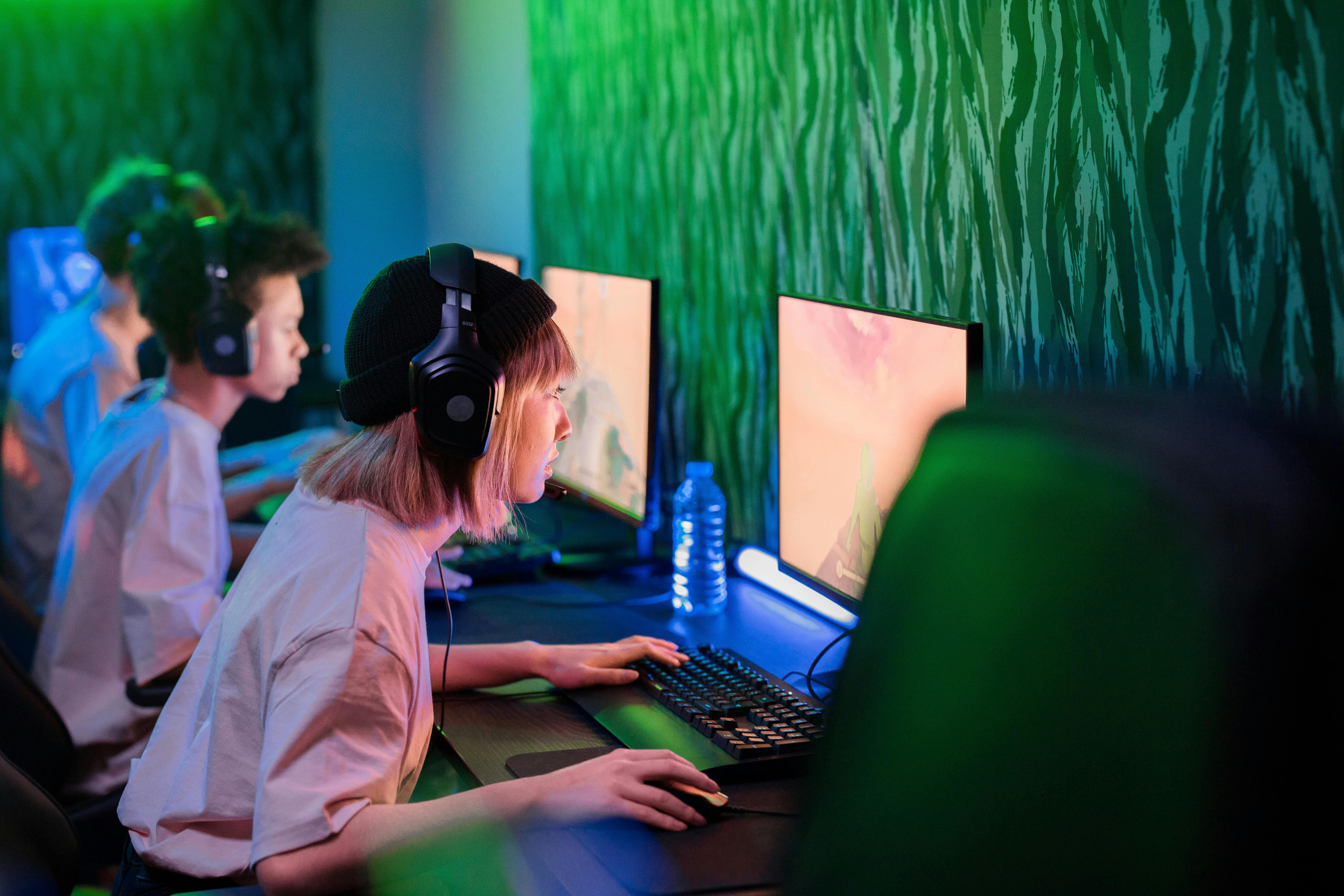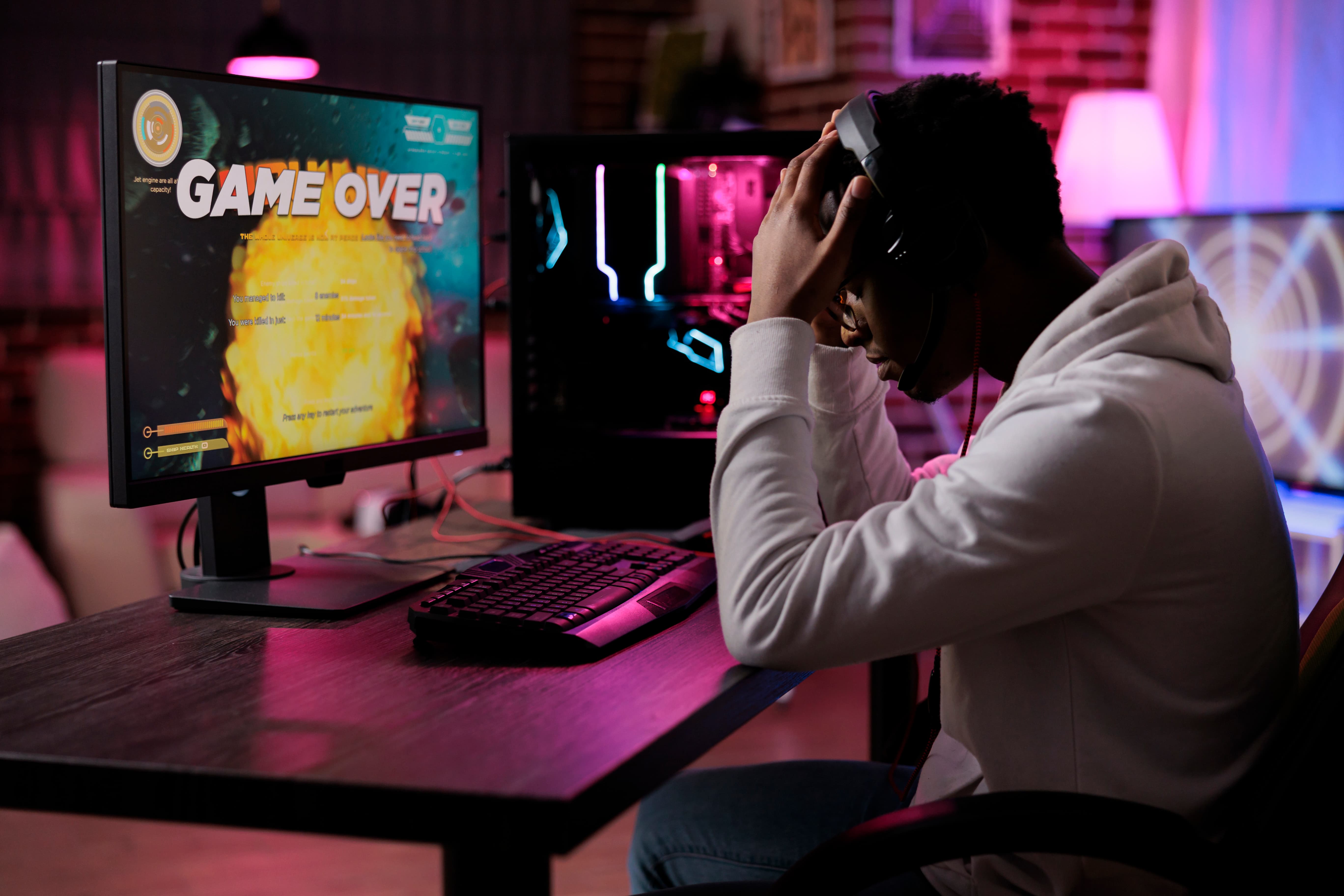Effective gaming addiction treatment combines cognitive strategies, motivation-focused therapy, family support, and self-directed plans. CBT helps reframe gaming urges, while relapse plans, CRAFT techniques, and mindfulness build lasting habits. Support groups and scheduled device breaks reinforce control and emotional balance.
Gaming can start as a way to relax, but when it gets hard to stop or cut back, frustration and guilt tend to creep in. Small changes and the right tools can help break the cycle.

Cognitive Strategies That Disrupt Unhealthy Gaming Patterns
Changing how you think about gaming can help you take back control. These approaches reframe habits and support lasting change.
CBT Replaces Harmful Gaming Thoughts With New Habits
Cognitive Behavioral Therapy (CBT) is one of the most effective ways to treat video gaming addiction. It helps you notice the thoughts that lead to unhealthy gaming, like feeling the need to play to feel good about yourself or fit in.
In gaming addiction treatment, CBT teaches you how to push back on those thoughts and replace them with more realistic ones. It also includes exercises to help you manage emotions and make better decisions. That way, you’re not relying on games every time you feel bored or stressed.
Relapse Plans Help Prevent Excessive Game Time
A relapse plan gives you a simple way to handle those moments when you feel the urge to game too much. It helps you catch warning signs early and take action right away.
Plans often include:
- Screen time limits
- Daily offline activities
- Contacting support when needed
- Avoiding common triggers
At New Horizons Recovery Centers, therapists work with you to build a plan that fits your routine. Having a plan in place makes it easier to stay committed to recovery, even on the tough days.
Motivation‑Focused Therapies That Build Lasting Change
It’s normal to feel unsure about cutting back. Most people dealing with video gaming addiction aren’t 100% ready to quit, and that’s okay. Motivation-focused therapy helps you make progress, even if you haven’t fully decided what you want yet.
Open Dialogue Helps Clarify Personal Recovery Goals
Motivational Interviewing (MI) gives you space to talk things out without pressure. Therapists don’t tell you what to do. They ask questions that help you figure out what matters most and where gaming fits in.
This gaming addiction treatment approach works well when you feel stuck. You’ll look at both the pros and cons of gaming, without guilt. This can lead to small, meaningful changes.
You might talk about:
- What you want for your future
- Why you’re thinking about making a change
- What worries you about cutting back
- What’s gotten in the way before
Family Encouragement Strengthens Commitment to Treatment
Video game rehab works better when your support system is involved. Family members can help you stick to routines, stay motivated, and avoid slipping back. Honest conversations at home can build trust and keep you focused.
CRAFT Techniques for Parents and Loved Ones
When someone you care about is struggling with gaming addiction, your support can help create real change. Tools like CRAFT give families ways to stay involved without adding pressure.
Positive Reinforcement Shapes Healthier Daily Choices
CRAFT (Community Reinforcement and Family Training) is a behavior‑based family support model. It uses gaming rehab strategies that focus on progress and not punishment.
Instead of reacting to setbacks, it teaches families to recognize and reward small positive steps, like choosing a non-gaming activity, finishing a task, or stepping away from the screen without being asked. Noticing them shifts the focus from what’s going wrong to what’s going right.
Over time, this kind of gaming addiction treatment helps build more consistent, healthy habits. Research says that when families lead with encouragement, people are more likely to stay engaged and motivated in recovery.
Support Strategies Reduce Conflict and Withdrawal
CRAFT also helps families cut down on fights and tension. The goal is not to confront but to connect. That means setting clear but respectful boundaries, listening without judgment, and knowing when to give space.
These changes help lower defensiveness and make home feel safer. When things are calmer, the person in recovery is more likely to stay engaged in gaming addiction treatment and less likely to shut down or withdraw.
Social Support and Mindfulness in Recovery
Recovery’s a lot easier when you’re not going through it alone. Support from others and simple daily tools can keep you grounded and help you keep going.
Group Sessions Create Shared Accountability and Insight
Group therapy at a video game rehab is all about connecting with people who get it. If you’re dealing with video game addiction, it helps to hear from others facing the same things. That shared understanding cuts through isolation and shame, which are common in recovery.
Hearing other people’s stories shows that change is possible, even if your video game addiction symptoms feel too much. Groups also bring accountability. Everyone’s working toward similar goals, so it’s easier to stay on track. You also pick up new ideas for managing cravings and building balance.
Mindfulness Reduces Urges and Builds Emotional Control
Mindfulness trains your brain to slow down before reacting to urges. It’s a practical skill, and a lot of gaming rehab programs teach it. You can also do it on your own.
Try things like:
- Deep breathing
- Body scans
- Guided meditation
- Journaling after cravings
- Spotting triggers without judgment
These tools help reduce video game addiction urges and make everyday stress easier to manage.

Gaming Addiction Treatment That Encourages Independence
Some people need structure. Others do better with more flexibility. The right gaming addiction treatment can support both by helping you take control of your screen time at a pace that works for you.
Self‑Directed Plans Reduce Screen Time Over Time
Self-directed plans give you more input in how you reduce gaming. Instead of quitting everything at once, you work with a therapist to build a step-by-step plan that fits your life. That could mean deleting certain apps, setting screen limits, or swapping one gaming session for something offline.
This approach builds self-awareness and puts you in the driver’s seat. You celebrate wins, work through setbacks, and stay focused on real, lasting change.
Device Breaks Interrupt Compulsive Gaming Loops
Taking short, planned breaks from screens helps interrupt compulsive habits. Try things like:
- Leaving your phone in another room
- Setting screen-free blocks of time
- Taking weekends offline
- Replacing late-night gaming with sleep
With support, these breaks feel manageable and help create more balance long-term.
Start Your Recovery with the Right Support
Gaming addiction treatment in Ohio works best when it’s clear, focused, and grounded in what actually helps. Real progress starts when you have the right tools and the right people backing you.
New Horizons Recovery Centers offers expert, evidence-based care for every stage of recovery. Call today to find out how we help turn daily struggle into meaningful direction.

-ink.jpeg)
-ink.jpeg)
-ink.jpeg)
-ink.jpeg)
-ink.jpeg)
-ink.jpeg)
